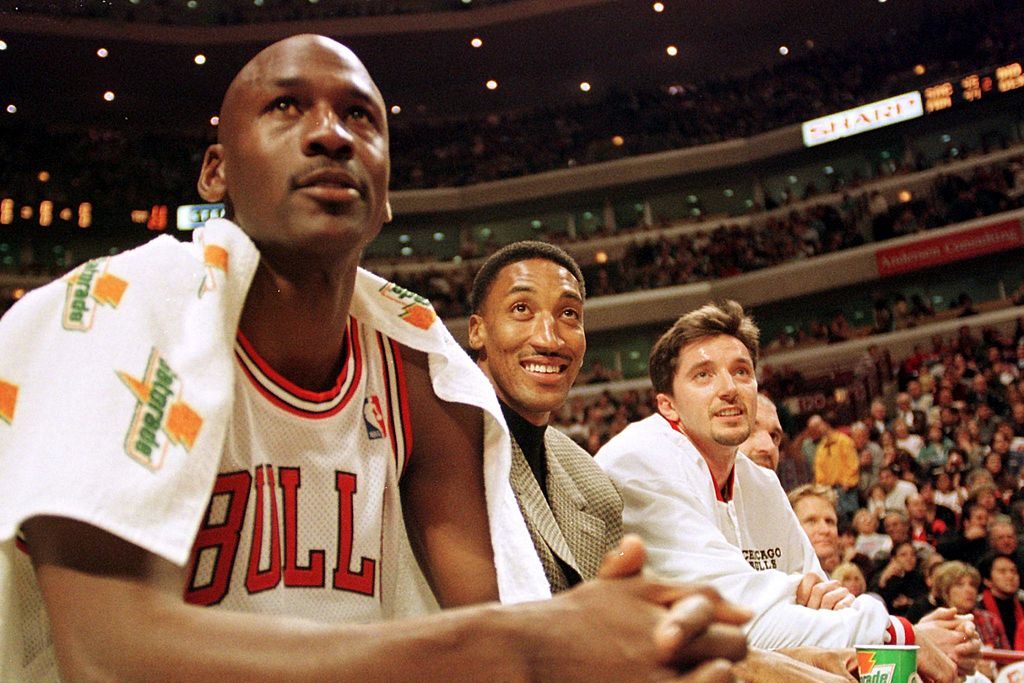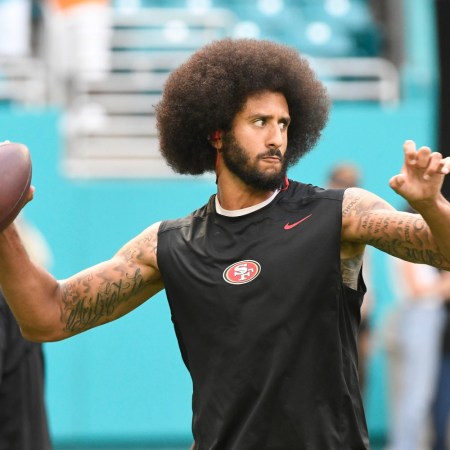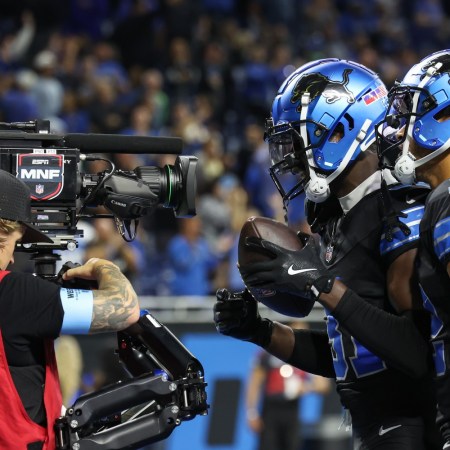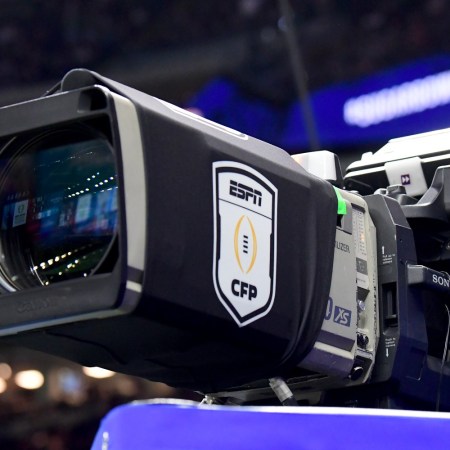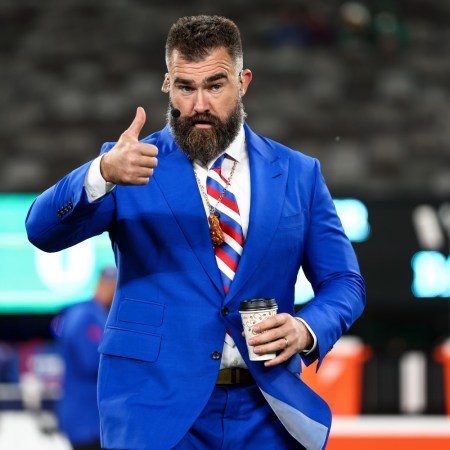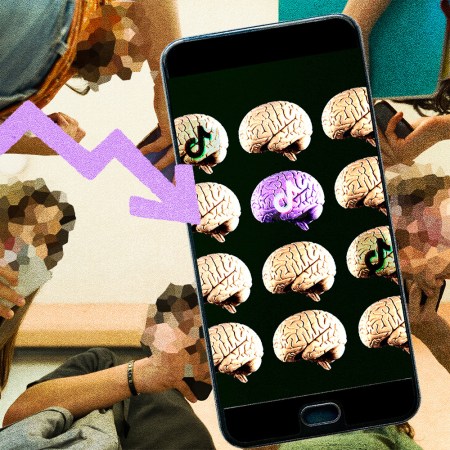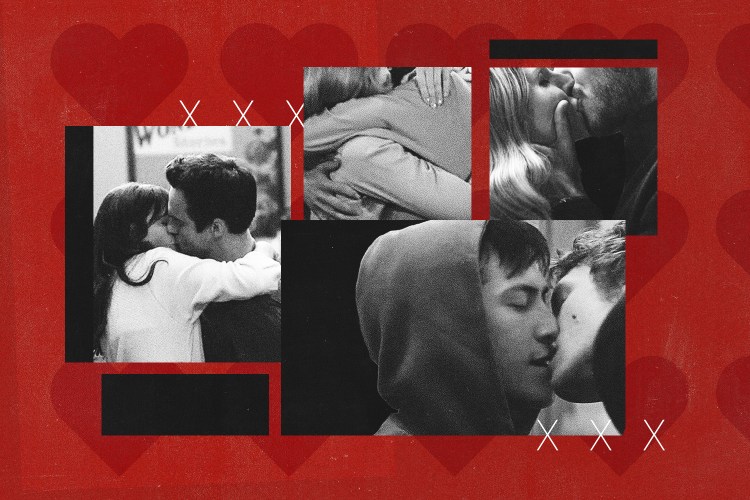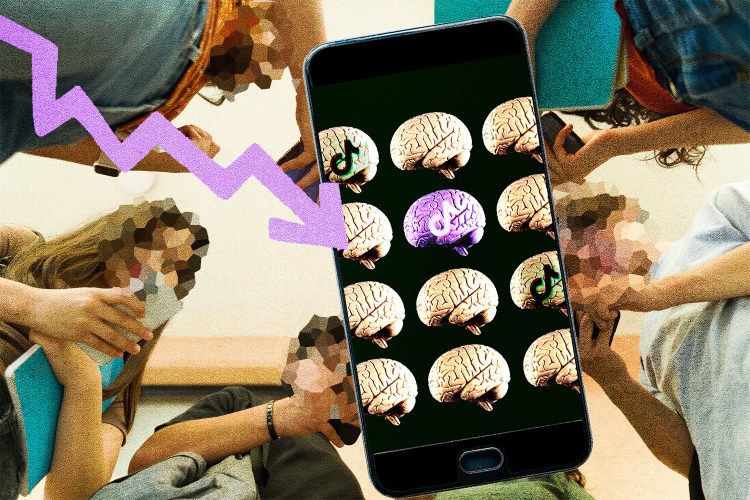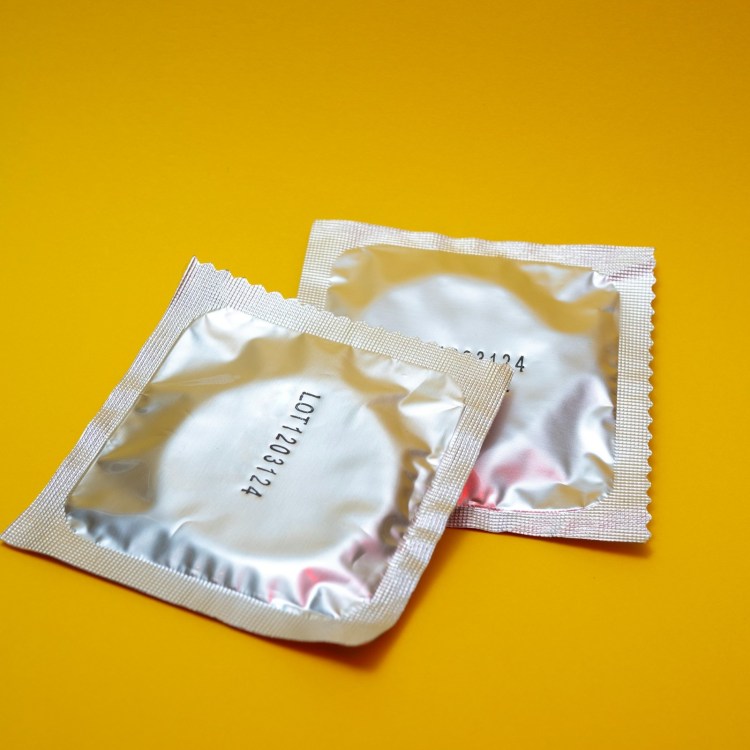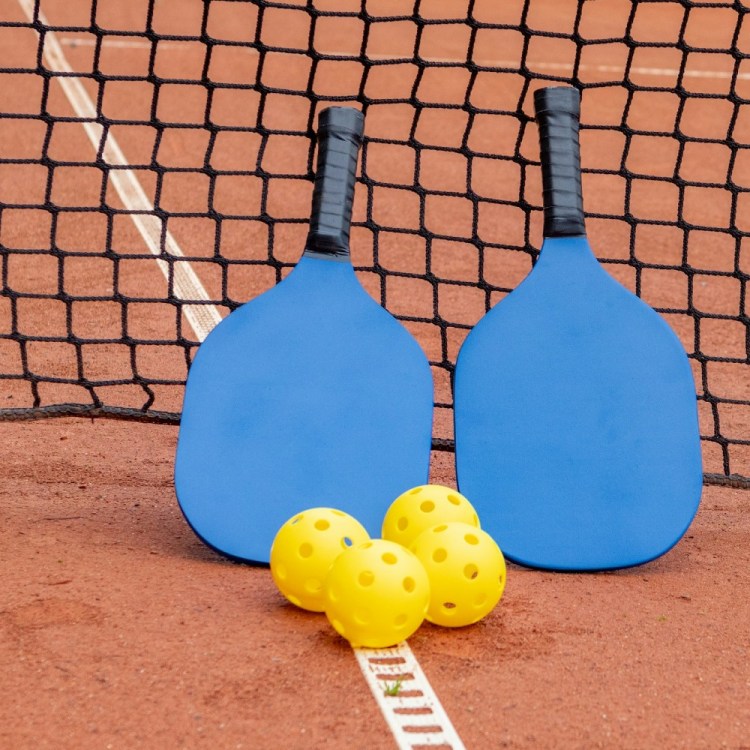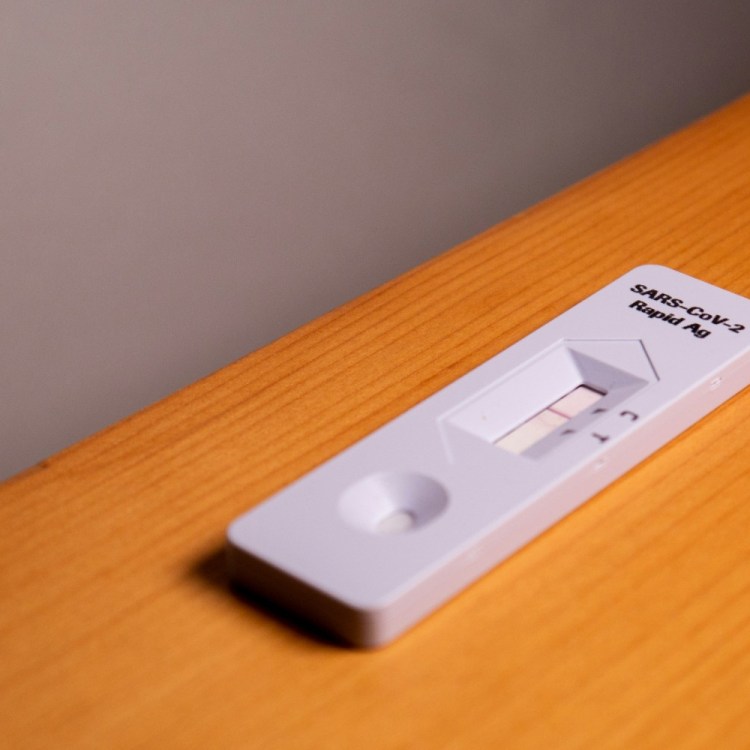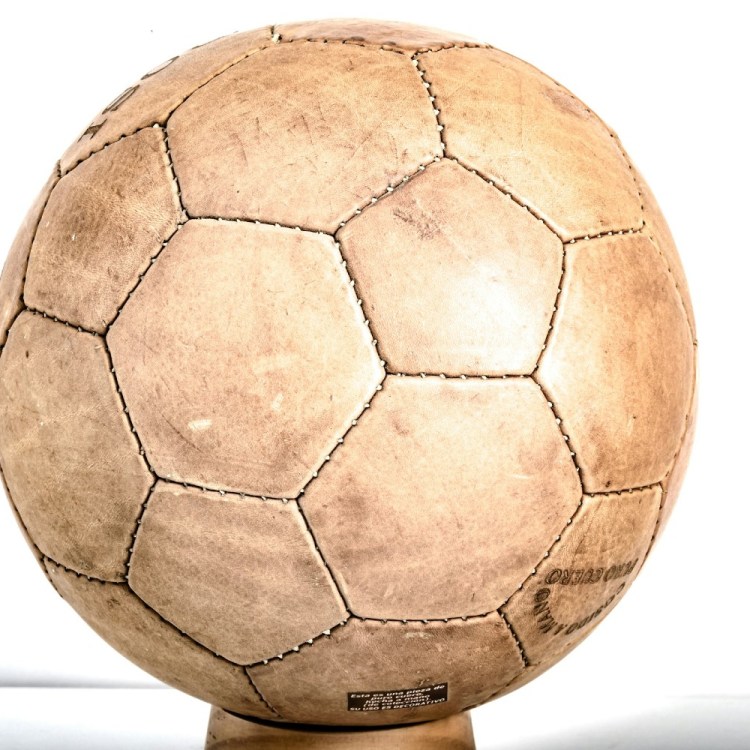ESPN’s highly anticipated 10-part docuseries The Last Dance — about Michael Jordan’s final championship run with the Chicago Bulls in ’97-’98 — made its debut last night, two months ahead of schedule to rescue us all from our quarantine-induced boredom and provide a much-needed distraction. But even if the world hadn’t come to a screeching halt and rendered us all desperate for entertainment, the series would (rightly) be earning high praise for its behind-the-curtain look at one of the greatest sports dynasties of all time’s final chapter.
Of course, more words have been written about Jordan than just about any other athlete, and even if you didn’t grow up watching his every move in Chicago like some of us did, you’re already familiar with the lore. But The Last Dance provides a unique perspective on the Bulls’ quest to complete their second three-peat through extensive interviews (director Jason Hehir interviewed 106 people for the project) and fly-on-the-wall footage. Whether you’re a Bulls novice or someone who gets goosebumps the second you hear Ray Clay yell “Aaaaaaaaaaand now….” over the Alan Parsons Project’s “Sirius,” you’re bound to learn something new. With that in mind, here are the biggest revelations from episodes 1 and 2.
The way each Bull introduces himself is extremely telling
Episode 1 has the ’97-’98 Bulls’ biggest stars introduce themselves to the camera, and the way they each chose to do it speaks volumes about each personality. “My name is Michael Jordan. I played with the Bulls from ’84 to ’98,” Jordan begins, highlighting his achievements before smirking and referring to his much-publicized retirement and unsuccessful foray into professional baseball as the time he “took an 18-month vacation, a hiatus. So I would say that’s 13 years I played with the Bulls.”
Pippen, ever humble, keeps it short and simple: “Scottie Maurice Pippen, from Hamburg, Arkansas.” Not to be outdone, Rodman’s self-introduction is even shorter and…well, quintessentially Rodman: “Dennis Rodman….wassup?”
The ’84-’85 Bulls were all coked up (except for Jordan)
The biggest laugh we see from Jordan in the first two episodes comes when he’s asked about an article that referred the Bulls as a “traveling cocaine circus” during his rookie season. After giggling, clapping his hands together and then slapping his knee remembering how coked up his teammates were that year, MJ recalled one particular incident in Peoria, IL. during the preseason and reiterated that he wasn’t involved with any drug use.
“I walk in and practically the whole team was in there,” he said. “And it was like, things I’ve never seen in my life, you know, as a young kid. You got your lines over here, you got your weed smokers over here, you got your women over here. So the first thing I said, ‘look man, I’m out.’ Because all I can think about is if they come and raid this place, right about now, I am just as guilty as everyone else that’s in this room. And from that point on, I was more or less on my own.”
There are no presidents on The Last Dance
The first two episodes of The Last Dance featured not one, but two former presidents, and keen-eyed viewers soon took to Twitter to pounce all over the fact that Barack Obama and Bill Clinton both received some hilariously humble descriptions from producers. Clinton, who of course was commander-in-chief during the majority of the Bulls’ dynasty, is credited as “former Arkansas governor,” while our nation’s first black president is referred to simply as a “former Chicago resident.”
Producer Jason Hehir explained the decision, telling the Athletic, “That is a Michael thing. Barack Obama is not the kind of guy that I can find his number and text him. Michael had a connection. But I was pretty adamant that we don’t have people in here who don’t have an organic connection to the story. I think the temptation is because Michael was super famous, let’s get as many super famous people in here as possible. There were conflicting philosophies amongst all the [production] partners of what makes a good documentary and what makes a documentary sizzle. I’m a filmmaker first and I just want to tell the story of this team as if they were not super famous. Who were the human beings who make up this team and how did they become famous and how did they handle that fame? So that was an interesting part of this whole thing. The good thing is that we all have the common goal — that it should be fantastic and everyone should enjoy watching it. I think the temptation would be to say, well, Bill Clinton was president in the 1990s. He has to talk about Michael because he was the President when Michael was playing and he saw Michael play live. My question was, okay, what is Bill Clinton going to say that is different than any other fan would say about watching Michael play? Why should he be considered an authority on basketball just because he’s Bill Clinton? Now if Bill Clinton says I was governor of Arkansas when Scottie Pippen was in high school and I saw Scottie play, that’s organic to the story and much more interesting.”
Jordan and Pippen would openly mock Jerry Krause
The animosity between Bulls players and general manager Jerry Krause was, of course, no secret. But while we already knew that Krause didn’t exactly have any fans in the Bulls locker room (comments like “players and coaches alone don’t win championships; organizations win championships” didn’t help him there), The Last Dance shows us that Jordan and Pippen weren’t afraid to tell Krause how they felt directly to his face. Several players recall one instance where an angry Pippen berated Krause from the back of the bus, and we see several clips of Jordan making comments about Krause’s height and weight to his face.
In one scene, Jordan asks Krause if he wants to shoot layups before quipping “they gotta lower the rim first,” and in another he spots the general manager holding some medication. “So those are those pills you take to keep you short,” Jordan says. “Or are those diet pills?”
Is it rude? Yes. But so is, one might argue, dismantling the greatest dynasty the NBA had ever seen to needlessly rebuild and telling Phil Jackson, the winningest coach in Bulls history, that “I don’t care if you win 82 games in a row; this will be your last year here.”
Jordan dropped 63 points against the Celtics because he was mad he lost a golf game
Michael Jordan’s record-setting 63-point game against the Boston Celtics in Game 2 of the 1986 Eastern Conference playoffs is the stuff of legend. So is Jordan’s insanely competitive nature and his tendency to use those who have doubted or slighted him to fuel his fire. But it turns out the two are more connected than we knew.
It turns out prior to Game 2, MJ had a particularly disappointing golf game with Celtics guard Danny Ainge, and when he lost, he vowed revenge on the team. “I took a few bucks off Michael that day and we’re talking trash to each other,” Ainge recalls in the doc. “That might have been a mistake.”
“Hey, tell your boy DJ [Dennis Johnson] I got something for him tomorrow,” Jordan reportedly said as he was leaving the golf game. The rest, as they say, is history.
“We ended up winning the series, but it was an incredible, incredible playoff performance,” Larry Bird says. “I’ve never seen it before and I hadn’t seen it after. That wasn’t Michael Jordan. That was God disguised as Michael Jordan.”
Scottie Pippen was really, really underpaid
Everyone already knew in the ’90s that Scottie Pippen was underpaid, but in its Pippen-centric second episode, The Last Dance reminds us just how underpaid, pointing out that his contract was essentially highway robbery. Decades after the fact, the seven-year, $18 million deal that he signed in 1991 seems absolutely unconscionable. As the docuseries notes, there’s a strong case to be made that he was the second-best player in the league: during the Bulls’ championship run, he was No. 2 on the team in scoring, rebounds and minutes played as well as No. 1 in assists and steals, but he was No. 122 in salary in the NBA.
“It was embarrassing,” Phil Jackson says in the doc. “Because he was maybe the No. 2 player in the NBA.”
That contract also forced the Bulls to kick off the ’97-’98 season without him when Pippen, feeling unappreciated by the organization, delayed surgery on a ruptured tendon out of spite, electing to have the surgery close to the beginning of the season instead of in the spring because, as he explains in The Last Dance, “I’m not going to fuck up my summer doing rehab.”
“There was a lot of anger from Scottie,” Steve Kerr recalls, while Jordan says “I felt like Scottie was being selfish.” Episode 2 wraps up with tensions between Pippen and the Bulls front office at a boiling point, with the small forward demanding to be traded. We, of course, already know how that ultimately played out, but we still can’t wait to see it chronicled in Episode 3 next week.
The Charge will help you move better, think clearer and stay in the game longer. Subscribe to our wellness newsletter today.
